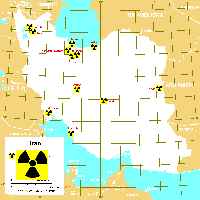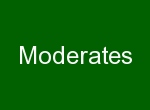CHRONOLOGY: Events in Lebanon since Hariri's killing
Wed Dec 12, 2007 3:03am EST
(Reuters) - A suspected car bomb near Beirut killed a senior military officer on Wednesday who was a leading contender to take over as army chief after the present commander becomes president.
Here is a chronology of some of the main events in Lebanon since former Prime Minister Rafik al-Hariri was killed, along with 22 other people, on February 14, 2005.
February 28 - Pro-Syrian Prime Minister Omar Karami resigns.
October 20 - U.N. investigators say high-ranking Syrian officials and their Lebanese allies were involved in Hariri's killing, in report to U.N. Security Council. Syria denies it.
December 12 - Gebran Tueni, anti-Syrian member of parliament and Lebanese newspaper magnate, is killed by a car bomb near Beirut.
July 12, 2006 - Hezbollah captures two Israeli soldiers in cross-border raid, setting off 34-day war in which about 1,200 Lebanese are killed.
November 11 - Five pro-Syrian Shi'ite Muslim ministers from Hezbollah and its ally, the Amal movement, resign after collapse of all-party talks on their demand for more say in government.
November 21 - Industry Minister Pierre Gemayel is killed by gunmen. U.N. Security Council approves plans for tribunal to try suspects in assassination of Hariri and subsequent attacks.
December 1 - Hezbollah, Amal and supporters of Christian leader Michel Aoun camp outside Prime Minister Fouad Siniora's office in central Beirut in open-ended campaign to topple government.
January 25, 2007 - Aid conference in Paris pledges more than $7.6 billion to help Lebanon recover from the war.
February 13 - Three people are killed in two bomb blasts near a Christian village northeast of Beirut.
June 13 - Anti-Syrian parliamentarian Walid Eido and five other people killed by a car bomb near a Beirut beach club
September 2 - Lebanese troops seize complete control of Nahr al-Bared camp after months of fighting with Fatah al-Islam militants. More than 420 people, including 168 soldiers, have been killed in the worst internal violence since the civil war.
September 19 - Car bomb in Beirut kills seven people, including anti-Syrian Christian lawmaker Antoine Ghanem.
September 25 - Parliament postpones a presidential election for the first of eight times in a bid to break a deadlock over a consensus candidate and end the political crisis. France leads mediation efforts for a deal on a presidential candidate.
November 23 - President Emile Lahoud leaves presidential palace
at the end of his term, without a successor.
November 24 - Siniora says his cabinet is assuming executive powers in the absence of a president.
Dec 5 - Parliament Speaker Nabih Berri says rival Lebanese leaders have agreed on General Michel Suleiman as president.
Dec 11 - Berri postpones parliament session to elect Suleiman to December 17 to give rivals more time to reach broad political agreement.
Dec 12 - Car bomb kills Brigadier General Francois al-Hajj, the army's head of operations, and a number of bodyguards in a Christian town east of Beirut.
(Writing by David Cutler, London Editorial Reference Unit)
March 5 - Syrian President Bashar al-Assad tells his parliament Syrian troops will start phased pullout from Lebanon.
April 26 - Last Syrian soldiers leave Lebanon.
June 2 - Samir Kassir, journalist opposed to Syria's role in Lebanon, is killed in Beirut by a bomb in his car.
June 16 - U.N. investigation into Hariri's killing starts.
June 19 - Lebanese parliamentary elections end in victory for anti-Syrian alliance led by Hariri's son Saad al-Hariri.
June 21 - Former Communist Party leader and critic of Syria George Hawi is killed in Beirut by a bomb in his car.
October 20 - U.N. investigators say high-ranking Syrian officials and their Lebanese allies were involved in Hariri's killing, in report to U.N. Security Council. Syria denies it.
December 12 - Gebran Tueni, anti-Syrian member of parliament and Lebanese newspaper magnate, is killed by a car bomb near Beirut.
July 12, 2006 - Hezbollah captures two Israeli soldiers in cross-border raid, setting off 34-day war in which about 1,200 Lebanese are killed.
November 11 - Five pro-Syrian Shi'ite Muslim ministers from Hezbollah and its ally, the Amal movement, resign after collapse of all-party talks on their demand for more say in government.
November 21 - Industry Minister Pierre Gemayel is killed by gunmen. U.N. Security Council approves plans for tribunal to try suspects in assassination of Hariri and subsequent attacks.
December 1 - Hezbollah, Amal and supporters of Christian leader Michel Aoun camp outside Prime Minister Fouad Siniora's office in central Beirut in open-ended campaign to topple government.
January 25, 2007 - Aid conference in Paris pledges more than $7.6 billion to help Lebanon recover from the war.
February 13 - Three people are killed in two bomb blasts near a Christian village northeast of Beirut.
June 13 - Anti-Syrian parliamentarian Walid Eido and five other people killed by a car bomb near a Beirut beach club.
September 2 - Lebanese troops seize complete control of Nahr al-Bared camp after months of fighting with Fatah al-Islam militants. More than 420 people, including 168 soldiers, have been killed in the worst internal violence since the civil war.
September 19 - Car bomb in Beirut kills seven people, including anti-Syrian Christian lawmaker Antoine Ghanem.
September 25 - Parliament postpones a presidential election for the first of eight times in a bid to break a deadlock over a consensus candidate and end the political crisis. France leads mediation efforts for a deal on a presidential candidate.
November 23 - President Emile Lahoud leaves presidential palace
at the end of his term, without a successor.
November 24 - Siniora says his cabinet is assuming executive powers in the absence of a president.
Dec 5 - Parliament Speaker Nabih Berri says rival Lebanese leaders have agreed on General Michel Suleiman as president.
Dec 11 - Berri postpones parliament session to elect Suleiman to December 17 to give rivals more time to reach broad political agreement.
Dec 12 - Car bomb kills Brigadier General Francois al-Hajj, the army's head of operations, and a number of bodyguards in a Christian town east of Beirut.




































